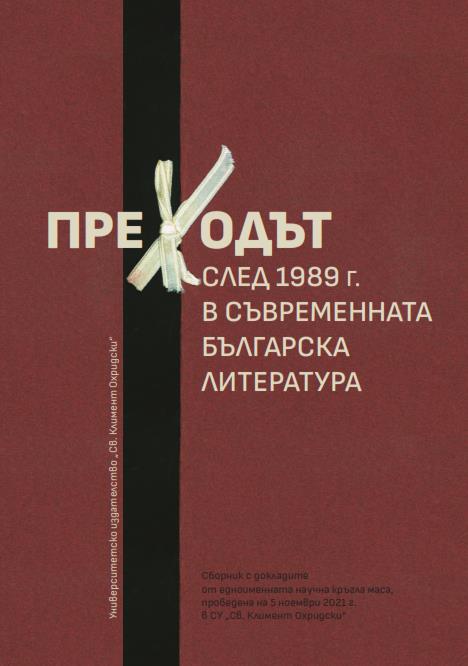Образи на прехода в новата българска драма в периода 1989–2007 г.
Images of the Transition in Contemporary Bulgarian Drama between 1989 and 2007
Author(s): Kamelia Nikolova
Subject(s): Theatre, Dance, Performing Arts, Language and Literature Studies, Fine Arts / Performing Arts, Studies of Literature, Bulgarian Literature, History of Art
Published by: Софийски университет »Св. Климент Охридски«
Keywords: Bulgarian drama of the transition; theatre and freedom; image of filial guilt; image of the cosmopolitan homeless person; new political theatre
Summary/Abstract: In the early years of Bulgaria’s political transition (1989–2007), writing for the theatre was in a situation substantially different from the developments happening on the theatre stage. While the latter, especially during the first ten years after the political changes, went through a period of rapid resurgence and intense and profound transformation, playwriting suffered a deep existential crisis. In the plays of those authors who had established their names prior to 1989, the crisis manifested itself as a traumatic need for a desperate revision of the past and for a pessimistic end to it. The main image of the transition imposed by these dramatic texts is of filial guilt – the guilt of children towards their parents, and the apocalyptic irreparability of the broken relationship between them. For the young generation of playwrights of the 1990s and those who came after them, the obsessive image of filial guilt was no longer familiar. They outlined a different emblematic image of the transition – that of the cosmopolitan homeless person. In their plays, children and parents live together, sharing a common space and time, their roles alarmingly mixed up. The image of the cosmopolitan homeless person has retained its presence, albeit in a new way, in the dramatic texts written after the beginning of the 21st century, where it is manifested mostly in the sharing and immediate experience of personal stories. Out of the emblematic perspectives and images of the transition in Bulgarian drama from the period 1989–2007, the only one retained in today’s writing for the stage, though in various different transformations, is that of the cosmopolitan homeless person. By contrast, the image of filial guilt has long disintegrated and is now forgotten, while the endeavour to distance and forget the past has been replaced by the theatre’s newly awakened critical attitude towards the processes and the complex dynamic developments current in the modern world.
- Page Range: 173-185
- Page Count: 12
- Publication Year: 2023
- Language: Bulgarian
- Content File-PDF

